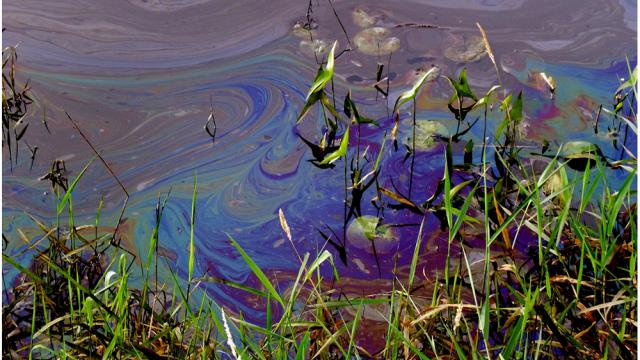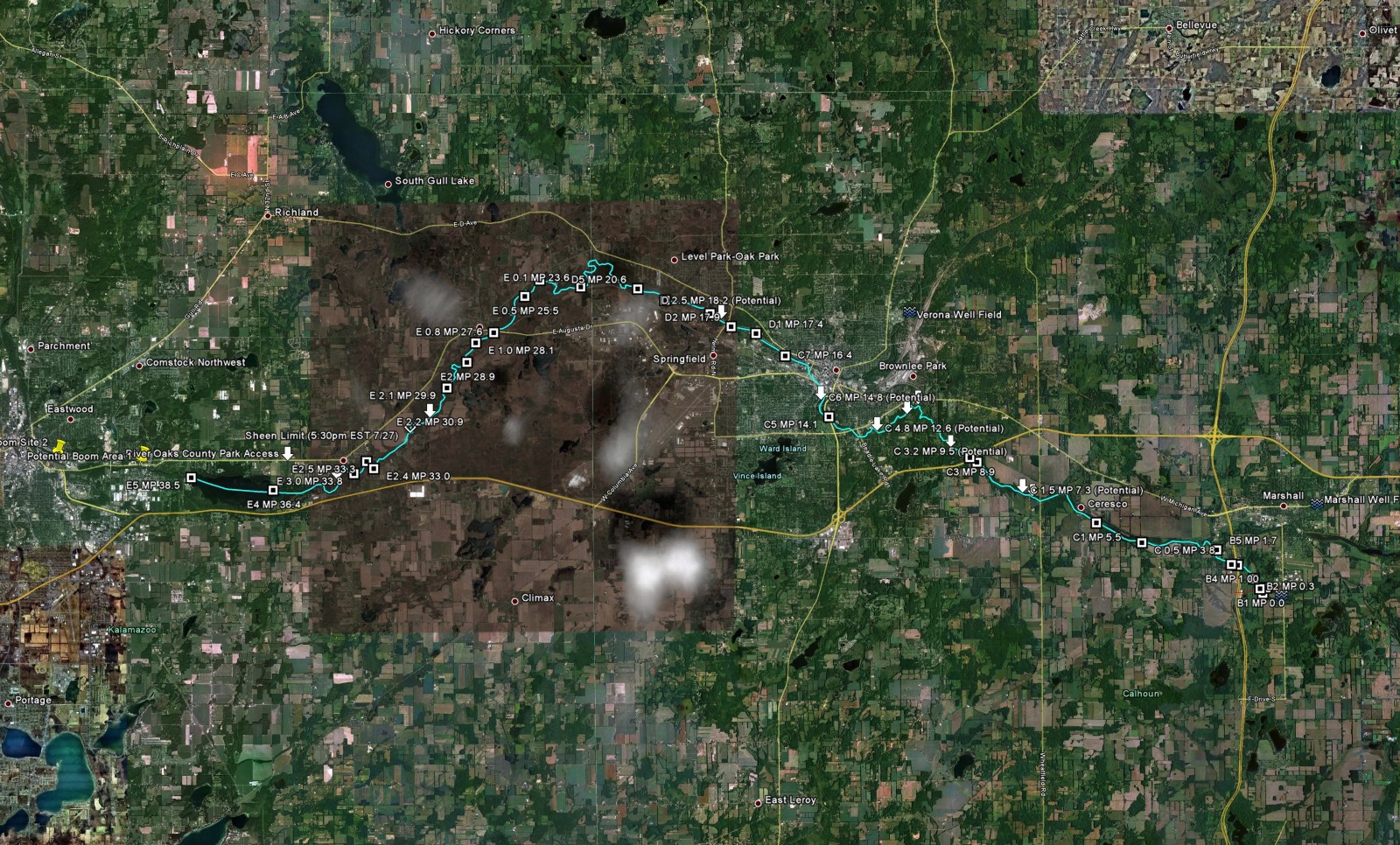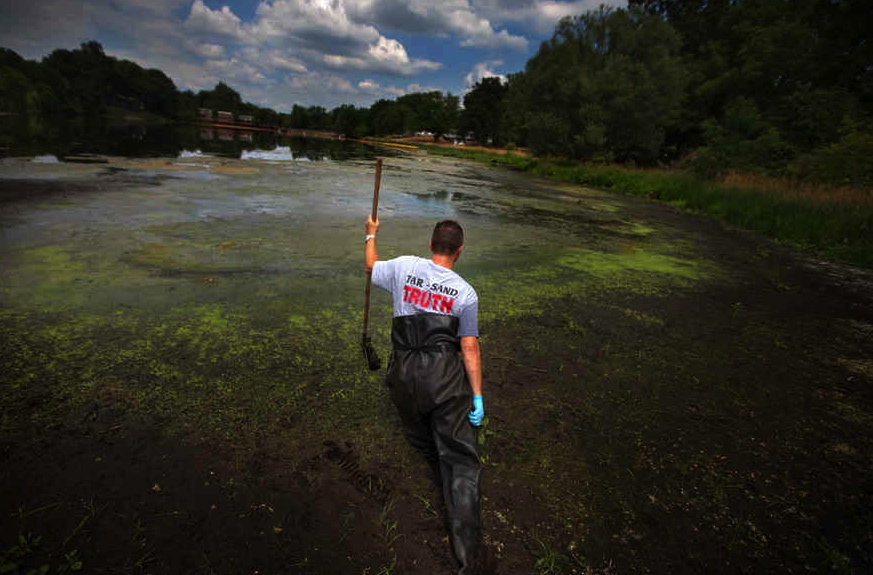
The largest onshore oil spill in U.S. history - Enbridge's ruptured Line 6B that released nearly 3 million liters of tar sands diluted bitumen into a tributary of the Kalamazoo River in Michigan, in July of 2010 - finally has an official price tag: $1,039,000,000. That's according to newly disclosed figures released by Enbridge in a Revised Application to expand another one of its pipelines, the Alberta Clipper.
The total cost, which includes clean up and remediation, was topped off with an additional $3,699,200 fine levied by the Pipeline and Hazardous Materials Safety Administration (PHMSA). According to the docket, Enbridge violated several laws involving pipeline management, procedural manuals for operations and maintenance, public awareness, accident reporting and qualifications among others.
The spill, which went unaddressed for over 17 hours, was exacerbated by Enbridge's failed response according to the US National Transportation Safety Board (NTSB). At a hearing last year the NTSB's chair Deborah Hersman likened the company to a band of Keystone Kops for their bungled response, which included twice pumping additional crude into the line - accounting for 81 percent of the total release - before initiating emergency shut down. The disaster revealed numerous internal problems within Enbridge that were further described by the NTSB as "pervasive organizational failures."
Communities along Talmadge Creek and the Kalamazoo River near Marshall, Michigan experienced sickness from the fumes associated with the spilled dilbit, or diluted bitumen, that blanketed miles of intersecting wetlands and waterways. Dilbit is a mixture of heavy oil from the Alberta tar sands and corrosive liquid chemicals, including benzene known to cause cancer in humans, that allow the viscous crude to flow.
The particular composition of dilbit is in part responsible for the spill's high costs - nearly 10 times more than any other onshore spill - because of dilbit from the tar sands which sinks in water, rather than floating like conventional oil. Enbridge, despite several attempts to clear the riverbed of remaining oil, spent nearly 3 years working on clean up of submerged oil.
As recently as March 2013 the US Environmental Protection Agency (EPA) ordered Enbridge to perform additional dredging in the Kalamazoo to clean up unrecovered oil along the river's bottom.
At the time of the spill Mark Durno, a deputy incident commander with the EPA told InsideClimate News "submerged oil is what makes this thing more unique than even the Gulf of Mexico situation." Because Enbridge did not disclose to federal and local officials the contents of the pipeline, it wasn't until a week later that responders knew what they were dealing with.
PHMSA records show that the defect that led to the 6 and a half foot gash in the side of Line 6B was detected at least three times before the incident, although neither Enbridge nor the federal regulator felt the damage required repair.
In a recently-released report addressing Enbridge's Line 9, pipeline safety expert Richard Kuprewicz claimed Enbridge "has a culture where safety management seems to not be a critical part of their operation."
Currently Enbridge has several proposed pipeline plans including the Northern Gateway Pipeline that would carry tar sands crude to the British Columbia coast and Line 9 that would transport tar sands crude to the eastern seaboard. Both lines would open the coasts to export opportunities. Local communities point to Kalamazoo and sinking dilbit as reasons coastal ports should not consider carrying tar sands crude on oil tankers bound for Asian or other shores.
Enbridge's most current application, a 'Certificate of Need for a Crude Oil Pipeline,' was presented to the Minnesota Public Utilities Commission this month as a part of Enbridge's "ongoing efforts to meet North America's needs for reliable and secure transportation of petroleum energy supplies" via the Alberta Clipper.
The Alberta Clipper, or Line 67, will increase its capacity from 570,000 barrels per day (bpd) to 800,000 bpd should the application be approved. The application is the second phase of Enbridge's proposed capacity increase for the Alberta Clipper. The first application, filed October 8, 2012, initially proposed the line be increased to 570,000 from 450,000 bpd.
Currently the line carries crude oil from Hardisty, Alberta to terminal facilities in Superior, Wisonsin where the line meets up with Enbridge's Mainline System for distribution across the US.
3 WAYS TO SHOW YOUR SUPPORT
- Log in to post comments













